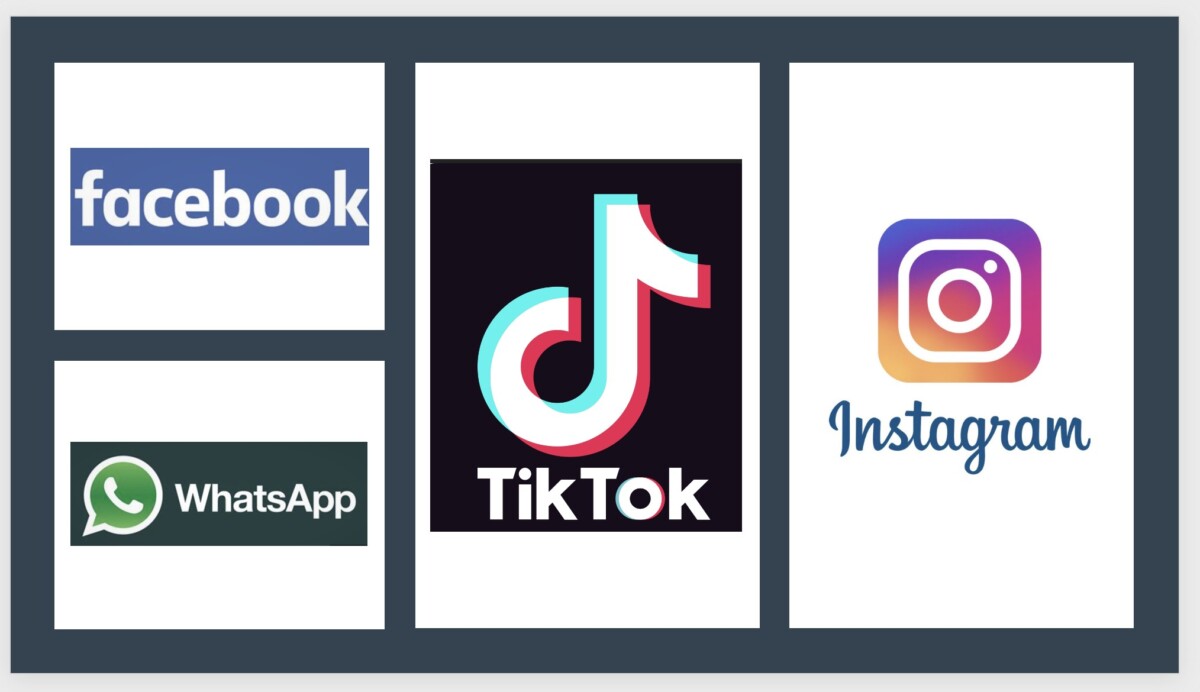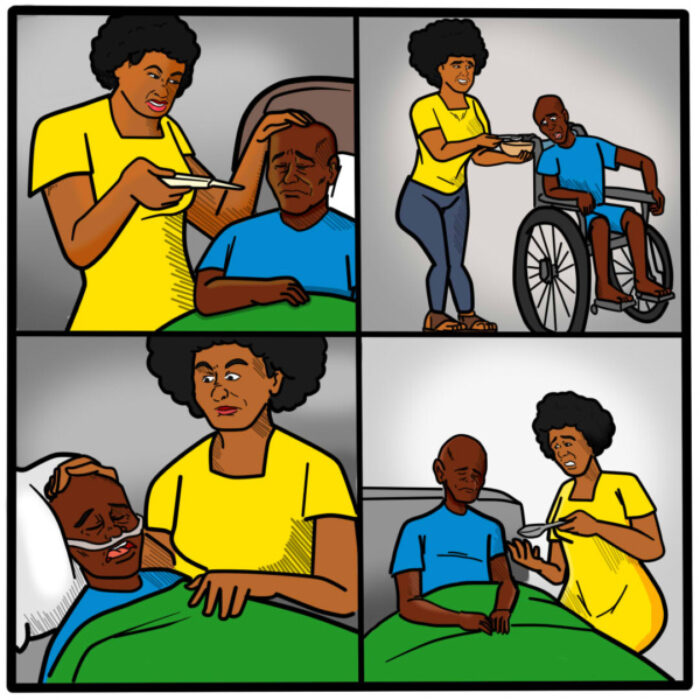By Nnaoke Ufere, PhD
Much has been written on how social media has affected Nigerian teenagers not just in how they behave but in how they read and write. The effect has been negative in general, according to experts who study social media use trends in Nigeria.
However, often overlooked and inadequately covered is the negative impact of social media engagement on Nigerian senior citizens. This in-depth exposé aims to provide fresh insights into the impact of social media on the older population in Nigeria.
The findings are unsettling: Social media consumption has disproportionately eroded the mental faculties of elderly Nigerians compared to other cohorts, particularly in terms of the overwhelming and harmful content they readily consume and share as accurate information.
Out of the seniors I polled, 65% recognized that their utilization of social media, specifically the mistreatment and lack of respect they encounter from certain disruptive individuals, contributes to heightening their feelings of anxiety, depression, or diminished self-esteem.
Have you recently explored the social media landscape in Nigeria, particularly in forums populated by senior Nigerians? I’m referring to platforms or online communities where senior citizens in their 60s, most retired, tend to gather.
These esteemed elders actively participate in and share social media posts, assuming roles as both consumers and sharers of content.
I am a member of several professional and cultural social media platforms, platforms characterized by the presence of erudite individuals with extensive education and experience in professional settings. The membership transcends ethnic boundaries.
To commence my investigation, I meticulously subjected 1,500 posts across five professional and cultural forums – to which I belong – to content and textual analysis. I often embed myself in online conversations to observe how members react or respond to posts that cross the line of human decency. Additionally, I surveyed other users regarding the impact that their presence on these platforms has on their mental well-being.
Undoubtedly, there are benefits social media engagement provides to seniors. For example, social media enables social connections among elderly Nigerians. They utilize it to exchange wedding invitations, celebrate birthdays, and commemorate burials. Importantly, it assists in combating feelings of boredom, isolation, and social seclusion, factors that might detrimentally affect their general well-being. These are commendable benefits.
Nevertheless, do these favorable aspects adequately outweigh the noticeable decrease in the ability of senior Nigerians to distinguish between disinformation, falsehoods, and blatantly degrading content? Is the heightened anxiety stemming from the apprehension of attacks and insults, or the deepened sense of depression, justified? Not particularly.
My observation reveals that these platforms frequently engage in spreading ignorance, false information, absurd conspiracies, and overtly misleading content.
They tend to attract individuals, although not everyone, who demonstrate a deficiency in common decency. These people often exhibit misogyny, microaggression, immature outbursts, and a negative disposition towards those with differing opinions. Remarkably, these are individuals with a considerable level of education.
More often than not, you encounter posts or comments that give you pause and prompt you to question, “Did they truly send this? Did they even take the time to examine or view it before sharing it with others? What could have possibly been their reasoning behind this?”
It became evident that the content shared (all forwarded material) had veered far from the path of mature, contemplative discourse that one might expect from seasoned adults.
Instead, it seemed as though they had regressed into juveniles in a playground, exchanging TikTok videos, fictitious content, and conspiratorial narratives. I find myself questioning the impact of social media on these men, as the participants are predominantly Nigerian males.
These elders have seemingly reverted to a state of childlike exuberance, though not in the creative and innocent way, but rather in a pitiful manner. Their attention is confined to the realms of disgusting comedy, male chauvinism, and sensationalism; anything outside these boundaries is unfunny and disregarded.
Women are objectified and demeaned, while those who oppose their distorted views are subjected to blackmail.
Absurd conspiracy theories proliferate unchecked. Amidst the height of the Covid pandemic and the vaccine rollout, these ludicrous theories drowned out any semblance of rational discourse.
In a single WhatsApp group, an astonishing 78% of the content that was shared, mainly consisting of TikTok videos, was found to be manipulated or fabricated information created by individuals lacking expertise in the subject matter.
As these fallacies were repeatedly disseminated or forwarded, they gained an illusion of authenticity and became normalized. Bill Gates, iPhones, electricity transmission lines, microwave ovens – each was conspiratorially implicated in the origins of the Covid virus. Various types of noxious mixtures and hastily prepared potions were enthusiastically endorsed as remedies, and individuals on these platforms ingested them without raising any doubts.
This environment thrives due to the mutual contamination of group members who mirror the mindlessness inherent in the TikTok content they enthusiastically circulate. In fact, there appears to be a sense of pride associated with being the quickest and most frequent sharer of nonsensical content.
Sadly, a significant number perceive such content as amusing and within the realm of normalcy. Venturing to express a mature perspective to criticize this juvenile conduct is a risk you would hesitate to take. If you do, you open yourself up to potential insults and outright attacks.
A few women who initially joined these platforms soon discerned that they were unwelcome and unprepared to endure the microaggression, subtle yet harmful caricatures of the female form. Consequently, they opted to disengage and depart.
On another online platform, a member politely asked one of the regular sharers of offensive and disrespectful material aimed at women whether he’d consider showing the same content to his daughters, wife, and “side chick” (as they term their shadow partners). The ensuing flood of senseless comments aimed his way was completely inappropriate.
When I contrast the online conduct of Nigerian seniors with that of individuals from other countries within other forums I participate in, it’s quite surprising to observe a notable difference in the level of maturity and civility evident in the content they share and discuss.
While older participants from other backgrounds engage in thoughtful conversations on professional and social matters, human interest subjects like family dynamics, economic trends, political affairs, and global issues such as climate change, as well as personal reflections on retirement and literary critiques, Nigerian seniors tend to allocate their time to consuming TikTok videos designed for and by teenagers.
I wish to emphasize that my objective is not to deride my senior counterparts; this issue is a serious matter. During what should be the zenith of their lives in their mid-sixties, these distinguished seniors have allowed their wealth of life experiences to wither away as they indulge in giggling at bizarre TikTok videos and incessantly sharing their newfound discoveries with anyone willing to partake in the degradation.
It’s not my intention to lay sole blame on social media. Boredom, the passage of time, and an inclination toward voyeurism could contribute as well.
In summation, it appears that the minds of Nigerian seniors have undeniably suffered erosion due to the influence of social media, and regrettably, there seems to be little recourse to counter this decline.
If you are among the few who are not actively engaged on these platforms, it might be advisable to thoroughly examine the rules governing participation, if applicable. It’s wise to steer clear of those that could potentially lead to feelings of anxiety and depression. The drawbacks outweigh the benefits.




